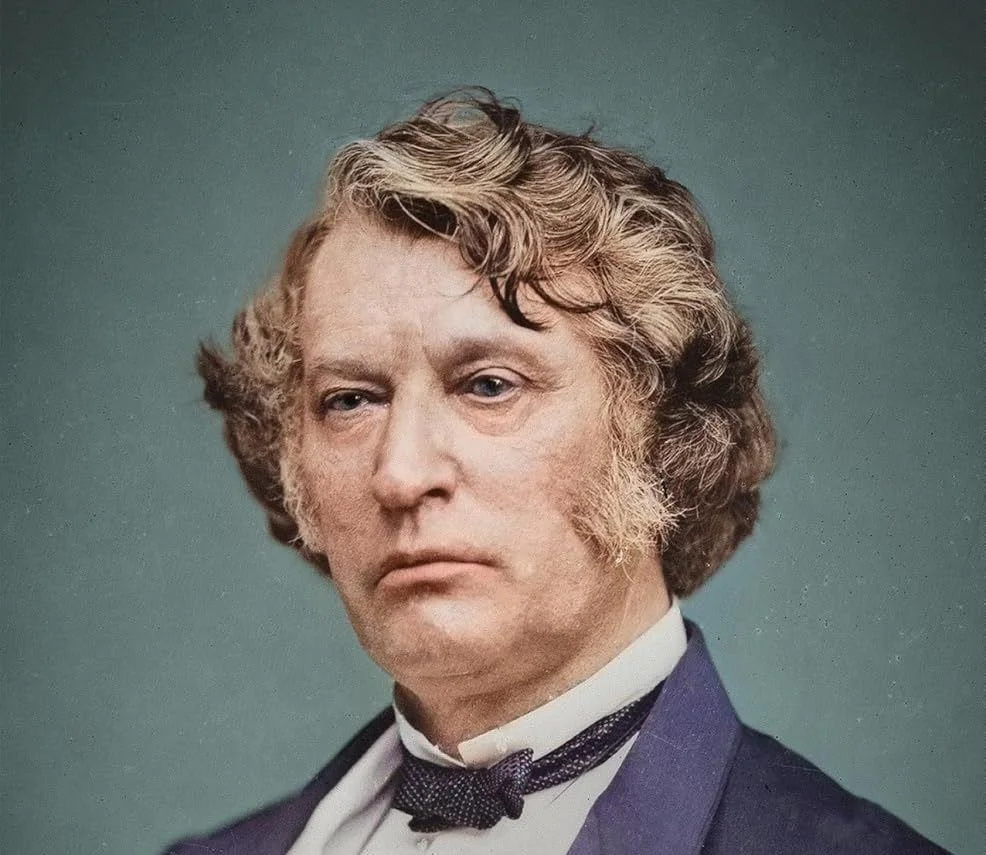.avif)
Have We All Misunderstood Enumerated Powers?
Richard Primus aims to destabilize and undermine the long-established orthodoxy that the enumeration of powers in Article I, section 8 of the Constitution limits the purposes for which Congress can act.
Americans revolted against a distant but controlling central power that violated their rights and governed them without their consent. During the ensuing instability and upheaval of the 1780s, they lived under a weak and inflexible central government, the Articles of Confederation, which could not restrain the often dangerous actions of self-interested and recalcitrant states. The Constitution of 1787 soon recalibrated the balance of power in favor of a more powerful and adaptable central government. This dynamic – revolt against overreaching centralized power, experience with too little of it, and then the quick realization that a new version of it must be created – is perhaps unique in the annals of constitutional state-building. It taught the American founders the dangers of both too much and too little power in the central government, which must be sufficiently strong to govern effectively, even as its powers must have discernible limits.
This is the proper context for assessing The Oldest Constitutional Question: Enumeration and Federal Power. Richard Primus aims to destabilize and undermine the long-established orthodoxy that the enumeration of powers in Article I, section 8 of the Constitution limits the purposes for which Congress can act. He also takes aim at the related view that the sum of Congress’s powers is less than the plenary or inherent power held by a government of general jurisdiction. Primus repeatedly states that he is arguing for an alternative way of understanding the issues involved and that his interpretation is contestable. The traditional view, he acknowledges, has evidence in its favor and remains plausible. He is also well aware that the doctrine of enumerated powers has become mostly a shibboleth, a toothless tiger that for over seventy years has done precious little to restrain Congress, which has done as it chooses, typically by invoking the commerce clause or the taxing and spending powers, often in conjunction with the necessary and proper clause.
So, what motivates this learned attack on the received wisdom about enumerated powers, an idea that, in modern times, has amounted to nearly a complete failure? Observing the Supreme Court’s appeal to enumeration to curtail the reach of the commerce clause in decisions such as United States v. Lopez (1995) and National Federation of Independent Business v. Sebelius (2012), Primus regards it as a “loaded gun.” It might again be invoked to halt the expansion of the modern regulatory state. Hence the need to undermine and unsettle it. Primus’s “best case” scenario, then, would be a Congress with enumerated powers, implied powers, and plenary or inherent powers to legislate in the national interest, “to do whatever other things the national legislature of the United States ought to be able to do.” Courts would mostly stay out of the way unless there was a plain violation of a textual prohibition, and Congress would get on with “vigorous national action in order to address pressing problems.”
Of course, what are “pressing problems” and what Congress “ought to be able to do” about them are deeply political questions. Dissatisfaction with a current Supreme Court majority that wields the doctrine of textually-limited powers does not mean that we will all agree on what Congress should do. But again, acknowledging that sufficient power and flexibility are necessary if government is to act effectively as times change, let us turn briefly to some of Primus’s evidence against a strict form of “enumerationism.”
While the established view is that the enumeration of powers meant to limit what Congress can do, Primus is correct to point out that the founders also intended it to augment the national legislature above and beyond what it could do under the Articles of Confederation. Such empowerment was much the point of calling the Philadelphia Convention in the first place. And of course, the necessary and proper clause is the textual basis for implied powers, as further confirmed by the deliberate exclusion of the word “expressly” from the Tenth Amendment’s description of the powers not delegated by the Constitution to the United States or prohibited to the states, and thus retained by the states or the people. Primus also addresses the Article I vesting clause (“all legislative powers herein granted”) in contrast to those of Articles II and III (“the executive power” and “the judicial power”). He urges that “all” need not mean “only” and observes that there are other legislative powers outside of Article I, section 8. These include Congress’s power to change states’ rules for congressional elections; to establish the line of presidential succession; to declare the punishment for treason; and to admit new states into the union.
More controversially, Primus is sympathetic to reading the so-called “sweeping clause” after the necessary and proper clause (“all other powers vested by this Constitution in the government of the United States or in any department or officer thereof”) as a font of plenary power. This would be to stand with what the Antifederalists alleged during the ratification debate and what founders like James Wilson sometimes affirmed (with Wilson and others also arguing the opposite case for enumeration at times). A large portion of the book is devoted to reevaluating the history of the Philadelphia Convention, the ratification debate, and early Congresses to argue that, in addition to the textual points noted here, support for powers beyond those enumerated was stronger than has been commonly accepted. Certainly, the book adduces credible historical evidence in support of this proposition. It thus presents an argument, originalist in form, which holds that a properly understood historical meaning sets few limits on what Congress can do, other than those explicitly prohibited in the text, the Bill of Rights, or by what the political process allows at any given time.
As noted above, Primus carefully states that his goal is to unsettle the orthodoxy of enumeration. It cannot be completely blown out of the water because, like his own case, it remains plausibly rooted in both the text and extrinsic historical evidence. Accordingly, he pronounces the original meaning of the Constitution to be “ambiguous.” He concludes that “in all likelihood, that text was written to invite both enumerationist and nonenumerationist readings.” Because the Framers could not agree on whether Congress should have powers beyond those enumerated, “they drafted a Constitution that did not decide.” Primus’s brief against enumerationism will succeed if it broadens the palette of reputable constitutional arguments beyond the traditional position.
This point, in turn, raises a broader one about constitutionalism that the book does not address: incorporating ineradicable tensions, such as the need for effective power and the need to limit all power, facilitates deliberation and negotiation about what prudent action requires in unforeseen circumstances. Politics, including constitution-making, cannot produce complete agreement or full theoretical coherence. But the repertoire of arguments induced by a well-made constitution can keep politics from devolving into violence – political actors instead debate what is allowed or forbidden by the text. Seen from this perspective, America’s written constitutionalism generates textualist-originalist interpretive presumptions of the kind associated with enumerationism that it will be difficult for advocates of plenary congressional power, such as Primus, to dislodge. These presumptions have reemerged to contest the regulatory reach of the modern state because they express the constitutional culture’s abiding insistence that legitimate government is limited government.
If one truly believes that what ails American constitutionalism today is that there is just not enough power in the federal government, Primus’s undermining of enumeration in favor of plenary power in Congress will prove attractive. By his lights, enumeration as limitation is a chimera, and even though in modern practice it has not worked, it should remain unavailing as a judicial check on the legislature. Would a Congress with this understanding of itself become a healthier and more constitutionally sound institution? Would it cease delegating its seemingly boundless power to the bureaucrats of the administrative state and resume some semblance of deliberation about the extent of its own legitimate reach and responsibility? That seems highly unlikely.
Congress must change, but it needs little encouragement to believe it can legislate on whatever topic it chooses. What it does need is boundaries on its ability to cede its responsibility to others and renewed inducements for its members to take up the burden of deliberation and compromise – and augmentation of its resources and capacity to do so. The Court has made some progress on the first necessity. The second is a much tougher nut to crack, though it seems to require more broadly based and better-disciplined political parties whose members see the legislative process as responsive to their interests, or who can institute reforms to make it so. Primus does not write for these purposes, to be sure, although he does remind us that successful constitutional governance requires adequate power to act effectively and that the national legislature is not limited to its enumerated powers in all instances. To be a friend to Congress today requires going further than just insisting that Congress faces few enumerated limits on its power.
Johnathan O’Neill is Professor of History at Georgia Southern University.
Constitutionalism

Amicus Brief: Hon. William P. Barr and Hon. Michael B. Mukasey in Support of Petitioners
Former AGs Barr and Mukasey Cite Civitas in a SCOTUS Brief

Rational Judicial Review: Constitutions as Power-sharing Agreements, Secession, and the Problem of Dred Scott
Judicial review and originalism serve as valuable commitment mechanisms to enforce future compliance with a political bargain.

Supreme Court showdown exposes shaky case against birthright citizenship
Supreme Court will hear challenges to Trump's order ending birthright citizenship, testing the 14th Amendment's guarantee for babies born in America.
.webp)
The Roberts Court Invokes Congress and the Constitution
The Court's message is that ultimate policy authority lies in the hands of Congress.

Slavery and the Republic
As America begins to celebrate its semiquincentennial, much ink has been spilled questioning whether that event is worth commemorating at all. Joseph Ellis’s The Great Contradiction could not be timelier.


.avif)










.avif)



